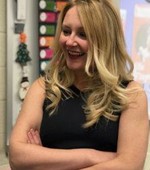Originally published Monday, 16 November 2015.
Last week as I was watching the news feed of the atrocity unfolding in Paris, a flood of memories came back.
I remembered moving to New York City in July 2001, just two months before the 9/11 attacks. I had moved from the Midwest, where I was raised, and was already intimidated moving to the city. Shortly thereafter, I experienced firsthand a tragedy that will forever rock the nation. My country, safety, and very humanity had been violated. There was fear, panic, and loss. Then there was the smell of burning for weeks and the subsequent bomb threats and anthrax scares.
Though newly transplanted, I was part of a city that looked to piece itself back together. Some decided to leave the city for good. But the many who decided to stay needed to make sense of what they could never have imagined before. I found myself searching for new life among the ashes of fresh memories. Where could I find hope?
One way I found it is through connectedness. A city that had once felt intimidating and cold grew warmer. It banded together as neighbor helped neighbor. I volunteered at Ground Zero at St. Paul's Chapel one evening. I served the firefighters and rescue workers who were physically weary but iron-resolved. Working consecutive shift after shift, their eyes told the story. They were drawing strength from banding together, working side by side. They were drawing hope from doing what they knew best in our desperate hour. Their friendly smiles in that dark, candlelit chapel were light to me.
In the wake of the Boston Marathon, I heard something that struck me as a result. A media station was encouraging its audience to "look for the helpers" as once again the country was reeling. Mr. Rogers, the popular children's television icon, had coined that phrase as a sign of active hope in tragedy. He said, "When I was a boy and I would see scary things in the news, my mother would say to me, 'Look for the helpers. You will always find people who are helping.' To this day, especially in times of 'disaster,' I remember my mother's words and I am always comforted by realizing that there are still so many helpers - so many caring people in this world."
Paris, look for the helpers.
I can only imagine the pain and hopelessness, coupled with the intense brainwashing, that would provoke individuals to have committed these crimes. They themselves have been stripped of their own humanity and turned into bombs. They have then acted in ways that reflect that towards others too. When this is done in God's name, it's not only a humanitarian crisis, but a sacrilege of what is holy and assault on divine love.
As a mother of two young sons, it hasn't escaped me that the individuals who committed these crimes were likely all young men. Therefore, in addition to expressing my solidarity with the victims, in addition to empathizing from my own experience, I have to think constructively about my response as a parent. As a minister, certainly I want to steer my children toward an understanding of religion that is life-giving and life-affirming. But I also want to impress upon them a sensitively to and responsibility for their neighbors in a local and global sense.
I read a quote in the wake of the Parisian tragedy yesterday that demonstrated this aim. L.R. Knost states, "It's not our job to toughen our children up to face a cruel and heartless world. It's our job to raise children who will make the world a little less cruel and heartless." Looking for the helpers when we're experiencing tragedy is healing; raising children to be those helpers is our necessary task. Instead of waiting for a miracle, we can join hands with one another to act now and simultaneously plant seeds for a better tomorrow in the next generation.
We can be a miracle. And we can raise them from the ground up too.
This post was also shared on Huff Post Parents.









